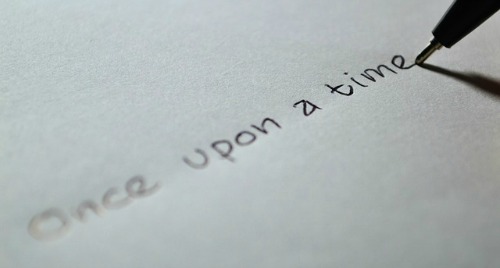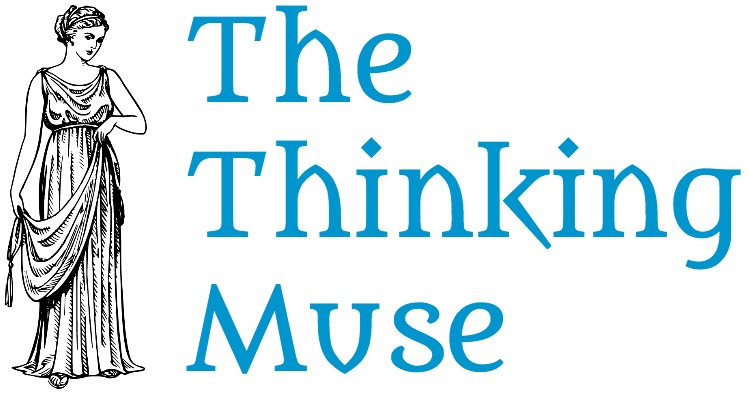Why stories are irresistible

Binge-watching.
This is now a thing. I admit I do it too. Overindulgence triggered by the need for the story’s conclusion.
Enabled by new tools such as autoplay, it now requires effort to stop the viewing. You know the laws of physics…objects in motion tend to stay in motion and objects at rest tend to stay at rest. We are just obeying the laws of physics like everything else in the universe. Is that a surprise?
Look at all the choices: podcasts, YouTube, gaming, movies, books, online streaming, and complete series DVD sets. They all lure us in with their fascinating stories. They are everywhere.
Binge-watching, also known as binge-viewing, has become so common that there have even been studies on the effect it has on us.
As covered in Newsweek.com, some doctoral students at the University of Texas completed a study that linked binge-watching with loneliness and depression. The article suggests that people binge-watch to avoid issues. Harvard School of Public Health linked prolonged television viewing to diabetes, cardiovascular disease, and premature death. Yikes!
These kind of statements are sure to grab headlines, but let’s just say I am skeptical. This first study only involved 316 young adults. The second article’s study is based on people who self-reported their own television viewing and the participant’s other health habits such as eating and exercise were not considered.
I am not saying the results aren’t true, but I am am curious if the “links” mean anything. Additionally, I think we have all heard news stories covering the increase of depression and anxiety in our culture. So, I would say the jury is still out on causation. I would be more apt to say a lot of these conditions are due to our culture, which does include a lot of television use.
The point is there are stories being consumed all around us, all the time. While this does have an impact on society, what I am interested in looking at for this article is the draw on the individual. Stories have the power to pull us in. So what makes stories so irresistible?
The Theory and Science of a story
Humans have been telling stories for a loooong time and they make up a large part of all our communications. There is a reason for this, stories match how we interact with the world.
A story is a form of learning or making meaning for oneself. From Jessica Davis and Howard Gardner, stories are one of many windows of learning. People have different intelligences (logical, musical, kinaesthetic, etc.) and can approach learning through different ways. Take the example of learning about a child going to the first day of school.
- Narrational (Story). A story could explain the events and feelings of a child going to school.
- Numerical/Quantitative. The child could be 5 years old and have a class of 20 other students with 1 teacher.
- Foundational. All kids go to school which is a building where you participate in experiences that teach a child about the world.
- Aesthetic. It may be scary to enter the large concrete building, but it will be fun when you make friends and feel comfortable in your stimulating classroom.
- Experiential. Take a tour of the school building or create a model of the school.
You can see that if different people each experienced only one of the learning windows mentioned above, they would each have a very different kind of knowledge of what a child going to school is like. How we learn has an impact on what we learn.
How we interpret and process learning experiences is also colored by our backgrounds, culture, previous knowledge, and our wants and needs. If something is relevant and stirs the listener emotionally, it is particularly engaging. At a certain point it can transform our perceptions. As fastcompany.com explains, our fears, hopes, and values are strongly influenced.
…when communication is optimal it creates an ‘affect’ among spectators and audiences…who are then able to cross an invisible ‘threshold’ of cumulative, personal and cultural experience. Thus, the viewer is an active participant in the communication process, not a passive observer.
-Flora E. S. Kaplan in Museum, Media, Message
There is neuroscience to back this up. Another article at Fast Company discusses what happens in the brain during storytelling. fMRI images show that while watching a story, the brain acts more like it is participating in the action than merely spectating. Another example is discussed at Buffersocial where descriptions of delicious food lit up the sensory cortex of the listener. In essence, the listeners were synchronizing with the storyteller. That is amazing power.
Harvard Business Review cites neuroeconomist Paul Zak’s research. He looks at the various hormones produced during storytelling. During stressful times of the story, cortisol a stress hormone was released and during times when cute animals were involved, oxytocin, the feel good hormone. Happy endings are the best of all, releasing dopamine in the limbic system leaving us hopeful and optimistic. Another experiment showed that after a story, those with higher oxytocin were more likely to give money to a stranger.
This all makes me think twice about all those commercials showing shining happy faces using their products. I guess drinking that soda won’t bring me life fulfillment. *wink* Of course, we all know that removed from the story. But when we are in the midst of the story, it sure seems compelling.
The marketers aren’t dumb, they know the science and are using it. Just be aware of the context and where the story is coming from. It can be used to manipulate. What is being told to you may not be the truth. Yes, we all know that, but under the influence of those yummy hormones we are vulnerable.
Now we know what a story can do to us, let us look at what makes a story particularly good or engaging.
What makes a story good?
How the plot is organized matters. The framework helps understanding and also plays a huge role in what is remembered following the story. The Harvard Business Review looked at Super Bowl commercials. A study found that the commercials that used a more structured and complete story were more successful.
Based on Shakespeare and ancient greek dramas, Gustav Freytag developed the dramatic structure also known as Freytag’s pyramid. The storyline should follow 5 parts.
- Exposition. This sets the context with background information.
- Rising action. The building events and actions to the point of interest of the story.
- Climax. The turning point of the story, where the storyline changes direction.
- Falling action. The actions unravel as a result of the climax.
- Denouement. The resolution or revelation ending the story.
There are many opinions out there discussing the keys to a good story. I looked at a number of them and condensed them into one which I feel covers the bases pretty well.
- Framework. The storyline should be organized, including a conflict and resolution.
- Descriptive. Utilize all the senses possible to transport the listener to an active participant.
- Emotion. Make them laugh or cry or feel something.
- Relevant. Make sure the story is appropriate for the audience. They should have some frame of reference for the context and be able to see themselves in the story.
- Believable. Make it feel real. Life isn’t always perfect or pretty. Include the feelings, conflicts, ugliness, and idiosyncrasies of the world.
- Smart. Your audience is smart so don’t dumb it down for them.
- Concise. Include items that are relevant to the story, nothing more.
That is a lot to ask for. I know that through my learning process of blogging, I am learning about how to make my writing more compelling for you. We all have places in our life where we want to communicate something to someone. Perhaps you can throw in some of these tips to help your listener engage. If not anything else, it can make you understand why you like a story, or not.
Stories
Here are some audio story resources for you. I have not listened to all of them, so listen at your own risk. I am sure you have your own personal preferences for what you enjoy.
I have linked to a website in most cases, although many of them are also available by podcast. The description of the content is their own.
- Inspirational stories A list of 10 “must see” inspirational videos from lifehack.org.
- Love + Radio “otherworldly-produced interviews with an eclectic range of subjects, from the seedy to the sublime”
- Otherppl with Brad Listi “features in-depth, inappropriate interviews with today’s leading authors”
- Porchlight: A storytelling series “people from different backgrounds to tell ten-minute true stories without using notes or memorization”
- Risk! “where people tell true stories they never thought they’d dare to share in public”
- Serial “one story – a true story – over the course of an entire season”
- Snap Judgement “raw, musical brand of storytelling, daring listeners to see the world through the eyes of another”
- StoryCorps: Celebrating 10 years of listening to America “provide people of all backgrounds and beliefs with the opportunity to record, share and preserve the stories of our lives”
- TED: Ideas worth spreading “free knowledge from the world’s most inspired thinkers — and a community of curious souls to engage with ideas and each other”
- The Moth: True stories told live “acclaimed not-for-profit organization dedicated to the art and craft of storytelling”
- The Stanford Storytelling Project “explores how we live in and through stories and, even more importantly, how to deepen our lives through our own storytelling”
- Third Coast Radio Stories Galore “curates sound-rich audio stories from around the world and shares them with as many ears as possible”
- This American life “It’s mostly true stories of everyday people, though not always”
- True Story: A night of true tales told to friends “In living rooms, attics, and vacant lots, on rooftops and around fires, people are gathering to tell each other stories from their lives”
- WireTap with Jonathan Goldstein “a mix of funny, thoughtful and unpredictable stories and conversations”
Are you a story fan?
Have you become a story fan in the last few years or did you become aware of the power of a story before the masses? Do you listen to stories on a regular basis? Let me know in the poll.
Do you have any favorites? Let me know in the comments so I can catch them.
My personal favorites are:
Randy Pausch’s Last Lecture: Achieving Your Childhood Dreams
Jill Bolte Taylor’s stroke of insight
Resources
7 Simple Ways to Make a Good Story Great at writersdigest.com
Depression a Factor in Binge-Watching TV Shows from Newsweek.com
Does Binge-Watching Make Us Depressed? Good Question at NPR.com
Hein, George E. Learning in the Museum. London: Routledge, 1998. Print.
Hooper-Greenhill, Eilean. The Educational Role of the Museum. London: Routledge, 1999. Print.
Hooper-Greenhill, Eilean. Museum, Media, Message. London: Routledge, 1999. Print.
Prolonged television viewing linked to increased risk of type 2 diabetes, cardiovascular disease, and premature death from Harvard School of Public Health
Infecting An Audience: Why Great Stories Spread at fastcompany.com
The Irresistible Power of Storytelling as a Strategic Business Tool at hbr.org
The Science Of Storytelling: How Narrative Cuts Through Distraction Like Nothing Else at fastcompany.com
The Science of Storytelling: What Listening to a Story does to our Brains at Buffersocial
Wikipedia contributors. “Dramatic structure.” Wikipedia, The Free Encyclopedia. Wikipedia, The Free Encyclopedia, 30 Apr. 2015. Web. 30 Apr. 2015.
www.buzzfeed.com a list of storytelling resources and why you should listen
www.creativekeys.net a website of eclectic storytelling tidbits called Storytelling power
www.storyteller.net a website that has a ton of links to story resources
www.timsheppard.co.uk a website that has a ton of links to story resources






